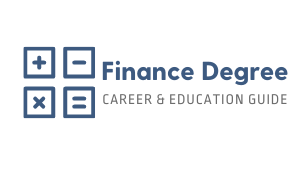Why Pursue a Bachelor’s Degree in Accounting in 2025?
To the outside world, an accounting degree may seem like it’s all about boring number crunching completed by socially awkward students. This perspective could not be further from the truth!
In reality, a Bachelor’s degree in accounting is ideal for those not only comfortable with calculations, but also for those who like helping others while explaining complex matters in a way they’ll understand, figuring out puzzles and solving problems, paying attention to detail, and predicting and planning for the future.
A Bachelor’s in Accounting not only prepares future accountants but also opens doors to a wide range of other successful professions in business, finance, and even technology.
Bachelor’s of Accounting Degree Prerequisites
Admission requirements for Accounting Bachelor Degree programs vary from school to school. Generally, you will need to have graduated from high school or the equivalent (i.e., your GED), and some universities and colleges will require a minimum grade point average.
Additionally, some schools will require that you take the SAT or ACT standardized tests and meet minimum scores. It’s also a good idea to take related courses in high school, such as advanced math, business, or finance courses, if available.
Why Pursue an Accounting Bachelor’s Degree?
Accounting Bachelor’s Degrees include a versatile curriculum. According to The American Institute of Certified Public Accountants (AICPA)’s Start Here Go Places website, “Many students are surprised to find that an accounting major includes a variety of business courses such as marketing and international business, plus liberal arts courses outside of the business school.”
Jamie McCoy (CPA), Senior Manager, Audit/Assurance and Consulting, says it best: “Accounting is a business degree with a tangible skill that is always in high demand… The credibility that comes with the designation will open doors and expose you to career-defining experiences very early on in your career.”
What Kind of Courses Will I Be Taking?
Students in Bachelor of Accounting programs will complete a range of core courses and electives to align with their career goals. Accounting is more than just numbers—it’s problem-solving and helping organizations manage their finances and cash flow. You will gain a deep knowledge of foundational accounting practices, supplemented by broader business-specific skills, which are essential in today’s fast-paced world.
Core Course Examples:
- Principles of Accounting
- Intermediate Accounting
- Business Communication
- Management/Leadership Theory & Practice
- Business Law
- Micro & Macroeconomics
- Statistics
- Financial Planning/Analysis
- Auditing
- Corporate Taxation
- Accounting Information Systems
- Marketing
Additional Courses & Specializations:
- Payroll Accounting: Covers payroll topics including federal and state payroll tax law, workers’ compensation, and payroll tax returns.
- Governmental & Nonprofit Accounting: Focuses on accounting for governmental units and nonprofit organizations, including financial reporting requirements.
- Corporate Reporting: Delves into advanced corporate financial reporting, liability, equity, and the cash flow statement.
- Financial Analysis & Reporting: Understanding the role of financial data in decision-making and organizational strategy.
- Fraud & Forensic Accounting: Introduction to the techniques and skills required to detect and prevent financial fraud.
Concentrations available in many programs allow you to further specialize in areas such as:
- Financial Analysis
- Public Accounting
- Corporate Governance
- Information Systems/Technology
- Taxation
- International Business
- Managerial Accounting
What Kind of Careers Can I Pursue with a Bachelor’s in Accounting?
The first career that comes to mind, naturally, is accountant. According to the U.S. Bureau of Labor Statistics (BLS), the number of accounting and auditing jobs is expected to increase by 6% between 2023 and 2033. The BLS adds that the median annual salary for accountants and auditors was $79,880 per year as of 2023. Earning the CPA (Certified Public Accountant) designation makes you more desirable for future employers and generally leads to higher salaries. (For more information, visit our Certified Public Accountant page).
Accountants work in a variety of intriguing industries, including:
- Entertainment
- Sports
- Environment
- Information Technology
- Government
- Criminal Investigations/Forensics
- Non-profit
- Tourism
- Banking
- Manufacturing
Graduates with an accounting degree pursue a variety of other careers beyond accounting, including:
- Fraud Examiner
- Assurance Specialist
- Financial Analyst
- Cost Manager
- Business Analyst
- Controller/Treasurer
- Business Consultant
- FBI Agent
- Auditor
- Risk Manager
- IRS Agent
- Business Owner/Entrepreneur
- Pricing Specialist
A Bachelor’s degree in Accounting equips you with the skills to succeed in a variety of roles. Whether you pursue traditional accounting, corporate governance, or even forensics, this degree prepares you for a broad array of career opportunities.
Conclusion
Whether you want to pursue a career in accounting, banking, economics, financial markets, or taxation, a degree in accounting provides the educational foundation necessary for success. Accounting programs offer specialization opportunities and prepare you to meet the demands of today’s business landscape. As an accountant or business leader, you’ll gain a wide variety of skills, from financial analysis and auditing to business law and managerial accounting, all of which are critical in today’s economy.
- Career statistics and employment data provided by:
- * Salary Data: Bureau of Labor Statistics
- ** Job Growth Data: Bureau of Labor Statistics




